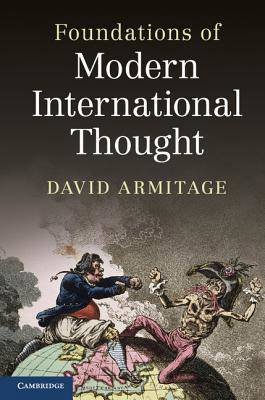
Je cadeautjes zeker op tijd in huis hebben voor de feestdagen? Kom langs in onze winkels en vind het perfecte geschenk!
- Afhalen na 1 uur in een winkel met voorraad
- Gratis thuislevering in België vanaf € 30
- Ruim aanbod met 7 miljoen producten
Je cadeautjes zeker op tijd in huis hebben voor de feestdagen? Kom langs in onze winkels en vind het perfecte geschenk!
- Afhalen na 1 uur in een winkel met voorraad
- Gratis thuislevering in België vanaf € 30
- Ruim aanbod met 7 miljoen producten
Zoeken
€ 100,95
+ 201 punten
Uitvoering
Omschrijving
Between the early seventeenth and mid-nineteenth centuries, major European political thinkers first began to look outside their national borders and envisage a world of competitive, equal sovereign states inhabiting an international sphere that ultimately encompassed the whole globe. In this insightful and wide-ranging work, David Armitage - one of the world's leading historians of political thought - traces the genesis of this international turn in intellectual history. Foundations of Modern International Thought combines important methodological essays, which consider the genealogy of globalisation and the parallel histories of empires and oceans, with fresh considerations of leading figures such as Hobbes, Locke, Burke and Bentham in the history of international thought. The culmination of more than a decade's reflection and research on these issues, this book restores the often overlooked international dimensions to intellectual history and recovers the intellectual dimensions of international history.
Specificaties
Betrokkenen
- Auteur(s):
- Uitgeverij:
Inhoud
- Aantal bladzijden:
- 311
- Taal:
- Engels
Eigenschappen
- Productcode (EAN):
- 9780521807074
- Verschijningsdatum:
- 29/11/2012
- Uitvoering:
- Hardcover
- Formaat:
- Genaaid
- Afmetingen:
- 155 mm x 231 mm
- Gewicht:
- 639 g

Alleen bij Standaard Boekhandel
+ 201 punten op je klantenkaart van Standaard Boekhandel
Beoordelingen
We publiceren alleen reviews die voldoen aan de voorwaarden voor reviews. Bekijk onze voorwaarden voor reviews.









